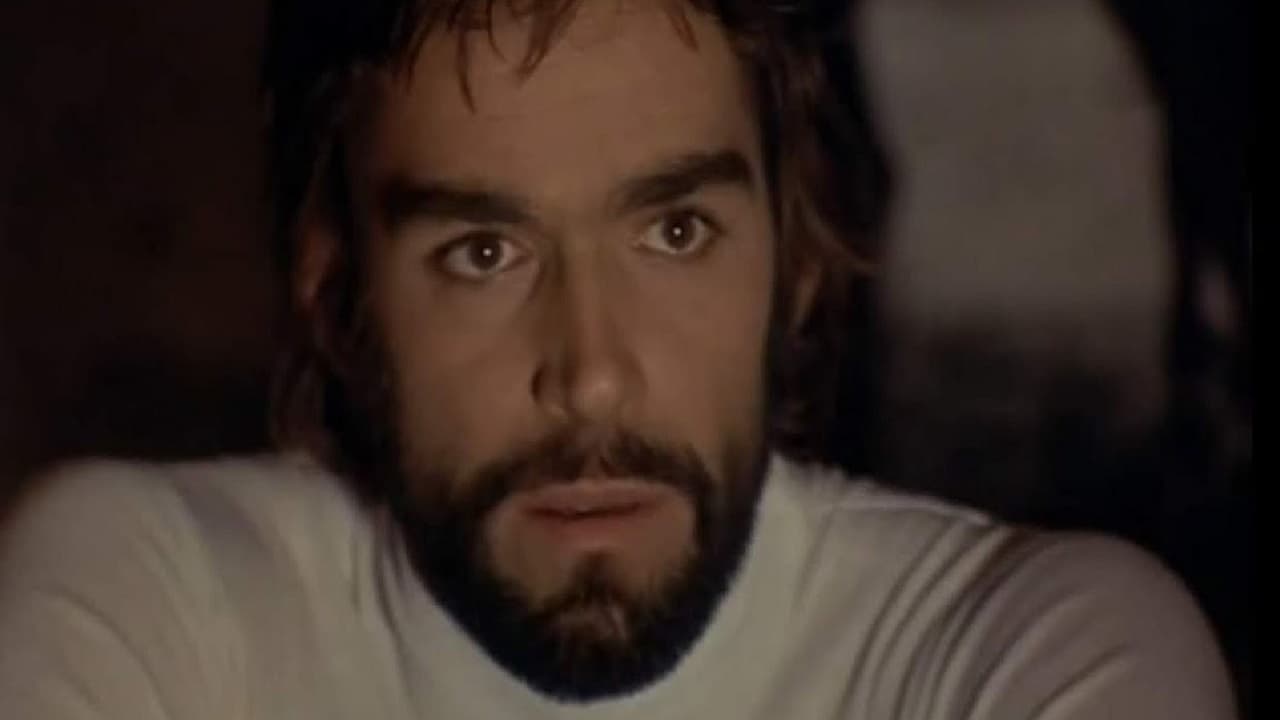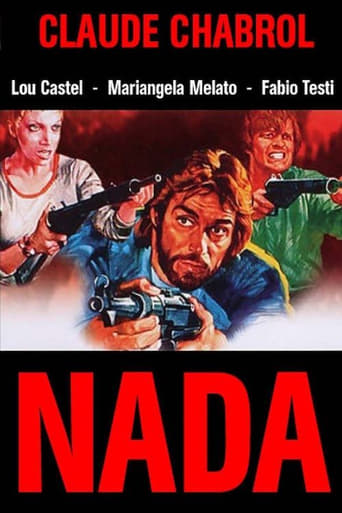

Who payed the critics
... View MoreThis movie is the proof that the world is becoming a sick and dumb place
... View MoreAbsolutely amazing
... View MoreIt's simply great fun, a winsome film and an occasionally over-the-top luxury fantasy that never flags.
... View MoreA group of anarchist leftist called "Nada" and led by the terrorist Buenaventura Diaz (Fabio Testi) abducts the American ambassador Richard Poindexter (Lyle Joyce) in a brothel in Paris and brings him to a farm in the countryside. The French Minister (André Falcon) gives a blank cheque to the violent chief of police Goemond to destroy the kidnappers and then makes him the scapegoat to protect the State. "Nada" is a political thriller by Claude Chabrol with a confused and pointless message. Maybe in the historical moment of its release (1974), with the United States of America sponsoring the dictatorships in South America, this acid criticism to the role and behavior of the State could work. But in 2011, this film is dated. In this genre, I still prefer Costa-Gravas films. My vote is six.Title (Brazil): Not Available
... View More"Nada" was the most inadequate follow-up to "Les NOces Rouges" which,with hindsight,appears now as the last good movie of Chabrol's golden era (1967-1973) "Nada" is Chabrol's first real attempt at a wholly political movie;his previous work "les Noces Rouges" had also political elements but it was more a psychological thriller with the usual look at society in French provinces."Nada" includes terrorists,ambassador,hostage-taking,a lot of blood,not really Chabrol's field.A heterogeneous cast gives the movie the coup de grâce :only Duchaussoy,who had already played with the director ,and Maurice Garrel are up to scratch.Viviane Romance ,one of Duvivier's actresses ("la Belle Equipe" "Panique") ,is wasted as a madam (Gabrielle).Italian actors (Fabio Testi,Lou Castel)are awful.With "Nada" this a second period of barren inspiration for Chabrol .It would be "Violette Nozières" before he was again at the top of his game.
... View MoreI've got to admit that this movie was pretty interesting to watch, but because it didn't seem very clear in its message I doubt it had much impact. It was just a rather cynical and nihilistic mess. The story is about a group of anarchists who snatch the US ambassador and hold him for ransom. But, we then see that although the terrorists aren't very nice, the police are a bunch of fascist thugs and they deliberately kill all the terrorists and let them kill the ambassador. So, the message seems to be contemporary French society of the 70s stinks and individual acts of terror are meaningless--so rise up all peoples and have a widespread revolution instead. Please,...I didn't watch the movie to be preached at or listen to distorted moral relativism. Ponderous and preachy seem to be the general tone of the film. PLUS, if EVERYTHING stinks, what, then, does the film's maker suggest instead?PS--this movie is pretty violent and there is some VERY explicit nudity that would make this inappropriate for all kids.
... View MoreFor nearly a decade, in the late 60s and early 70s, Claude Chabrol was arguably the greatest director in the world, in Europe at any rate. 'Nada' comes from this period, and yet is an exception in the oeuvre. Instead of a claustrophobic thriller in a domestic setting, 'Nada' is about international terrorists running amok through France (in a way, the film is a parody of the previous year's 'Day of the Jackal'). Instead of intricate psychological depth, Chabrol offers pure cartoon. The police are a hangover from the Vichy era, murderously cyncial, while the terrorists are organised by someone who no longer believes in revolution.As a sophisticated analysis of pressing contemporary events, the whole thing seems rather silly, until you start spotting Chabrol's wicked, misanthropic irony, and you wonder if the old boy hasn't done it after all. Never take Chabrol's glittering surfaces at face value. The massacre scene is deeply cynical, shocking, brilliant cinema.
... View More